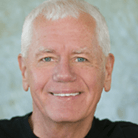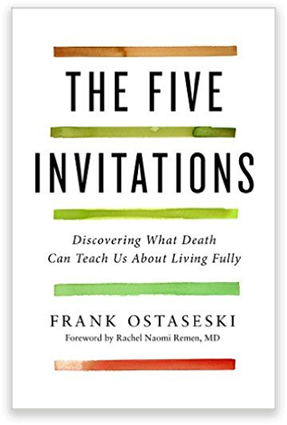No matter how you try, you can’t please your inner critic.
There is no fooling it. The critic knows your every move, every trick up your sleeve, every bit of your past. It has been right there with you throughout your life. You shower with it. Take it to work. It sits next to you at every meal and even sticks around for dessert. It’s there during and after sex. And yes, it’s definitely there when you are dying.
It compares, praises, devalues, diminishes, invalidates, blames, approves, condemns, and attacks your appearance, job performance, the way you conduct relationships, your friends, your health, your diet, your hopes and dreams, your thoughts, and your spiritual development. Pick something, anything, as it is all interchangeable. Let’s face it: in the critic’s eyes, nothing you do is good enough.
The critic is the enforcer, demanding compliance to an acquired set of standards and moral codes. It’s the voice that says, “My way or the highway.” And it wields brutally its chosen weapons of fear, shame, and guilt in order to get you to do what it wants.
Often in our most vulnerable moments, when we would benefit from tenderness, we club ourselves with self-judgment. Even near the end of life, it is common for people to look back with regret, to become obsessed with “if only” conversations, or to tell themselves that they aren’t doing a good job of dying. Friends and relatives add to the pile of guilt by projecting their own inner critic’s voice onto the person who is dying, suggesting that he should fight harder or she should let go more gracefully.
The inner critic is ambivalent about change, shifts in identity, creativity, and inner work, and it is downright terrified of anything bubbling up from the unconscious. The judge prefers status quo, the familiar, the predictable. It insists on homeostasis. “Don’t rock the boat,” it advises. “It’s not safe.”
That’s why focusing on self-improvement or making any attempt to fix what the critic views as “the problem” never works. In seeking the approval of others, conforming to an external standard, and trying to please, we are looking for love in all the wrong places. Praise and blame are symptoms of an infectious disease. And as with any illness, we need to do more than treat the symptoms; we have to address the underlying causes. We need to go to the heart of the matter. We need to see how the habit of constant self-judgment diminishes our life force, steals our inner peace, and crushes our souls.
The pursuit of perfection is learned early on and, for most of us, becomes a lifelong addiction. It is an ego-based quest that easily can eclipse the soul’s journey to wholeness. This is why, in order to bring our whole self to the experience, we must address the often unconscious, corrosive voice of the inner critic. It is the primary obstacle to self-acceptance, trust, and the expansion of our dynamic potential. It stops all growth, arrests inner development, steals our power, and makes negative self-talk the norm. Furthermore, the judge impedes our ability to connect and empathize with other people. Chances are if you’re extremely critical of yourself, you’ll be a harsh critic of others. You may think it even if you don’t say it.
When we bring our whole self forward, we include our brokenness. We make room for blemishes as well as purity, strength as well as vulnerability, success as well as screw-ups. Judgment focuses on what’s wrong; it feeds an “either/or” mentality. Embracing wholeness is a loving act of reclamation, a “both/and” way of meeting life.
To free ourselves from the inner critic, we have to understand something of its origins, how we are impacted by it, and how we can successfully disengage from its negative influence. In short, our treatment plan includes the application of wisdom, strength, and love.
When all of us were children, our parents and grandparents, older siblings, teachers, spiritual advisors, and other responsible adults in our lives did their best to show us right from wrong. By and large, they were well intentioned. Their goal was to foster our development and protect us from harm. Without a doubt, we needed some guidance or we wouldn’t have made it to adulthood alive and healthy, nor would we have been able to successfully enter into a society that relies on certain codes of conduct.
And so, these grown-ups imbued us with their values and standards. They taught us the basic rules they believed we would need in order to cope in the world. This natural socialization process only becomes problematic when it spills over into a forced attempt to align a child’s behavior with the adult’s view of life. Most grown-ups are not ogres, yet inevitably they pass along their unconscious assumptions, unskillful strategies, prejudices, and biases from their own unexamined lives. Maybe your parents were embarrassed by your fascination with your sexual impulses, or exhausted by your unstoppable energy. Perhaps your teachers and spiritual leaders used warnings and reprimands to control your behavior, manage your emotions, and keep you from doing things that made them uncomfortable. Or maybe your mother or father wanted to get you to do things you didn’t really want to do, like go to sleep when you weren’t tired, dress a certain way, have different friends, or eat what was offered, whether or not it looked and tasted good to you.
When we were small, the adults had all the power. We were completely dependent upon them for our budding self-perception and, more importantly, for our survival. To a young child, such approval or disapproval often feels like a matter of life and death.
Out of self-preservation, we learned to get and maintain approval and avoid shame and punishment by bending to adults’ wishes. Along the way, we internalized their voices of authority, adapted to their values, or rebelled against them. This conditioning—the “should” and “should nots,” the message that something was “wrong” with us—formed the basis of our inner critics.
As we come into adulthood, the harsh, coercive voice of the judge outgrows its usefulness. But it continues to live on in us as a powerful psychological structure that wants to protect us by managing our lives. It’s a bit like our wisdom teeth: once, when we existed on a diet of raw meat, nuts, and roots, these teeth were necessary for our survival. Yet as we evolved, we learned how to use tools, cutting and cooking the food we eat, and as a result, we no longer needed our wisdom teeth. Similarly, as we mature, we have access to a less reactive and more discerning wisdom that is objective, positive, and can function as a reliable and creative guide in our lives. We don’t need the critic’s constant appraisal and attacks, its humiliation, repression, and rejection, or the suffering it generates.
There is an alternative to the critic. It’s found in the movement from judgment to discernment. Judgment is the harsh, aggressive habit that shuts down the conversation, binds us to the past and old behaviors, and closes off our access to other capacities. Discernment makes space, helps us to have perspective, and allows more of our humanity to show up. Discernment helps wisdom to emerge and enables us to choose a more beneficial future. Our innate discriminating wisdom is a kind, more objective voice that is available to all of us. It can differentiate, discern, and intelligently guide us forward.
The critic may have served a purpose back in kindergarten, but it’s time to trade in our old model.
I was teaching a workshop in central Italy and had an insightful exchange with a student named Stella. She was a doctor, a warmhearted and attractive woman in her late thirties. After my talk about the inner critic, she approached me and said quite seriously, “I don’t have a critic.”
“Are you sure?” I asked.
“Yeah, I can’t find one,” Stella said. She told me how successful she was at work, how she had achieved her goal of becoming a doctor at a young age, how proud her parents were of her.
Now, in Italy there remains a strong cultural bias, or we might say a cultural critic, that places significant pressure on women of childbearing years to have babies. Italian women often find it daunting to balance work with the traditionally demanding expectations for mothers. Increasingly, many are opting not to have children at all. Yet the conditioning and beliefs run deep and are often the cause of considerable internal conflict.
I said, “Do you really want me to try to help you identify the voice of your critic? It could be quite painful.”
Stella was insistent. “Yes, yes, please. I want to understand.”
I took a guess. In a very calm tone of voice, I asked, “How come you haven’t had any babies yet?”
Immediately, Stella burst into tears. I didn’t have to add anything to that one line, nor did I need to speak it harshly. I knew my words would pass through her inner critic and the judge would make my question sound like an accusation. “You’re right!” she cried. “I hear that voice all the time . . . not just in my head. From my parents, my neighbors, my co-workers, even taxi drivers—and it always upsets me.”
Identifying her critic shook Stella to the core. She cried as I held her, yet she wanted to keep inquiring into her experience to help surface more of the story. I suggested to Stella that she might want to explore this issue with the support of a good therapist.
In fact, the incident did inspire Stella to go into psychotherapy to work on this issue. She came back to the workshop a year later and announced that she was very happily pregnant. She’d told herself that she had written off children because she had been so wrapped up in her career, but in truth, her critic was telling her that she wouldn’t be a good mother and would never find a partner to have children with her.
Thanks to therapy, Stella confronted her judge. She acknowledged a deep part of herself that wanted badly to be a mother—and always had. If the nasty, demeaning voice that called her a “loser” for being single at thirty-seven and “incapable” of raising kids had gotten its way, Stella never would have discerned the best path forward. She had to tune in to the far quieter voice of her soul. Then and only then was she able to figure out a plan for how to have a successful career as a physician and be a mother.
Our essential nature has certain attributes that are innate, meaning they already exist within each of us, and we all have access to them. One of these innate qualities is wisdom. People don’t usually think of wisdom as innate. They believe it is something you must acquire over the course of a lifetime though experience. It’s true, there is an analytical wisdom that needs to be trained and developed over time. But we also have an innate wisdom. Buddhism refers to a self-reveling wisdom-nature that we can attune to through meditation. As with Stella, we all have access to this inner wisdom, if only we listen carefully to the guidance it has to offer.
—Frank Ostaseski is the founder of the Metta Institute and cofounder of the Zen Hospice Project and author of Five Invitations: Discovering What Death Can Teach Us About Living Fully. www.fiveinvitations.com
Copyright Frank Ostaseski




Leave a Comment